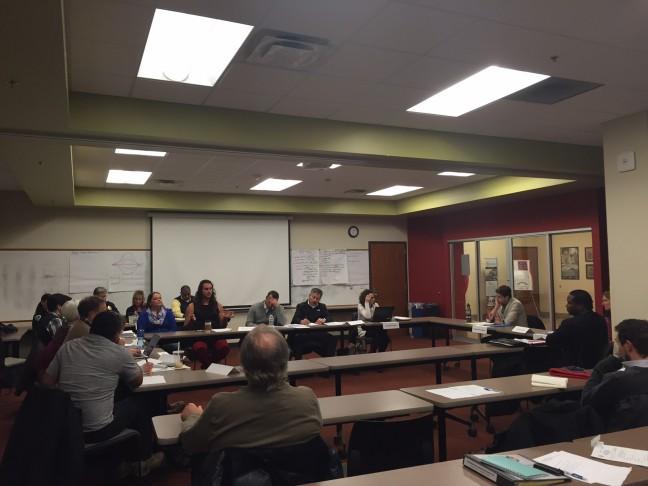Madison Police Department met for the first time with mental health advocacy groups to discuss the role of police in dealing with mental health crises.
Organizations such as National Alliance on Mental Illness, Access Community Health and Operation Welcome Home offered insight into ways MPD may best tackle issues of mental health. Positions ranged from increased training for officers to more investment in mental health professionals.
Lindsay Wallace, Dane County branch of NAMI executive director, said her organization has worked closely with MPD to give more officers Crisis Intervention Team training. MPD officer Kristen Roman said all officers are now required to take the 40 hour course which covers dealing with mental health crises and de-escalation techniques.
A greater emphasis should be placed on youth mental health, Wallace said, citing the fact adolescents committed 252 suicides in the last two years, the highest in the nation. She said substance abuse should not be a barrier for those seeking to use local mental health resources.
Wallace said her experience with MPD and their various mental health liaisons has been positive and touted the effectiveness of CIT training in smoothing police interactions in times of crisis.
“I’ve talked with family who have mental illness and interactions with the police they can tell the difference between someone who’s had CIT and someone who hasn’t,” Wallace said.
Linda Oakley, Access Mental Health mental health practitioner and UW professor, said one way to handle people with severe mental illness is to preemptively talk with police when someone moves to a new community.
Many individuals have specific triggers that can be useful to officers who might otherwise be unaware of a person’s issues, Oakley said. For long term care, she said it’s important to focus on the basics — making sure the patient keeps their home, job and relationships.
Oakley said her experience with MPD has been overwhelmingly positive, but pointed to serious problems with placing increasing mental healthcare responsibilities on police.
“The notion of having law enforcement do the job of mental healthcare specialists is a concern,” Oakley said.
Z! Haukeness, Operation Welcome Home spokesperson, said the organization pushes to end homelessness and the criminalization of homelessness. He said mental illness contributes to racial disparities within the Madison criminal justice system.
Haukeness said homeless people of color have been kicked out of homeless shelters because they are experiencing mental health crises. He pointed to the death of 19-year-old black male Tony Robinson as another example of a person in crisis who needed mental health resources.
A draft request for proposal for an expert to review MPD’s “procedures, culture and training,” especially with regards to racial equity, concluded MPD’s policy and procedure review committee meeting.
RFP will be discussed at the next committee meeting, which has yet to be scheduled.


